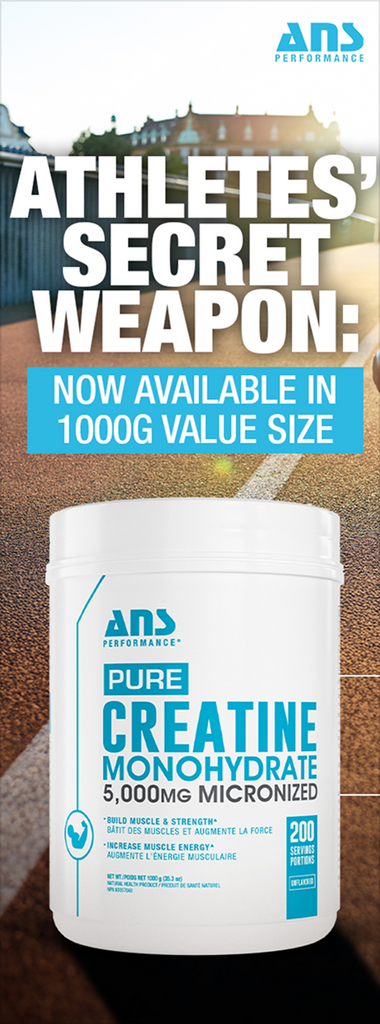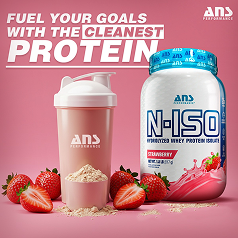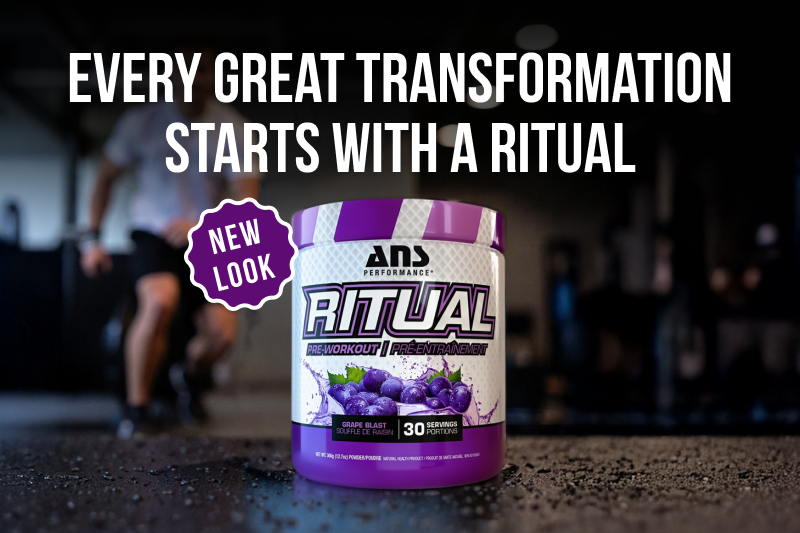
The Power of Creatine
Dr. Nicholas Rupcich, PhD
Creatine is a naturally occurring compound found in small amounts in certain foods and can be synthesized by the body. It has gained tremendous popularity as a powerhouse supplement in the world of fitness and sports, with its ability to enhance performance and support muscle growth. In this blog, we will delve into the science behind creatine supplementation, exploring its safety, efficacy, and the mechanisms that make it a go-to choice for many seeking improved physical performance.
How it Works:
Creatine is a nitrogenous organic acid that plays a crucial role in the production of adenosine triphosphate (ATP), the primary energy currency of cells. ATP is essential for various cellular processes, especially during short bursts of intense physical activity like weightlifting or sprinting. Creatine is stored in muscles and helps replenish ATP, providing a rapid energy source during high-intensity activities.
To enhance athletic performance, individuals often turn to creatine supplementation to increase the availability of phosphocreatine, a form of stored creatine phosphate, in muscle cells. This elevated phosphocreatine pool allows for quicker ATP regeneration, delaying fatigue and improving strength and power output during short-duration, high-intensity exercises.
How to Take Creatine:
Loading creatine into your system can be achieved through two main approaches: the loading phase and steady consumption. Both methods aim to increase muscle creatine stores, but they differ in terms of duration, dosages, and overall effectiveness.
Loading Phase Method:
Over the first 5-7 days, take 20 grams of creatine daily, divided over 4-5 doses. Thereafter continue with 3-5 grams of creatine daily. This method will rapidly saturate muscle creatine stores, and accelerate improvements in muscle strength and power. However, some individuals may experience gastrointestinal discomfort during the loading phase, due to the higher initial daily dosages.
Steady Consumption Method:
Take 3-5 grams of creatine daily, without the intensive loading phase. Typically, muscle creatine saturation is achieved within a few weeks. This method may minimize any potential gastrointestinal discomfort.
Regardless of your choice of method, creatine can be taken mixed in water, juice or your protein shake. There may be a slight benefit to taking creatine post-workout, but generally it is quite negligible and it’s just most important to ensure that creatine is taken daily and consistently.
Creatine Safety:
One of the most extensively researched supplements, creatine has consistently shown a high level of safety when used within recommended doses. Over 200 human clinical studies, including long-term investigations, have failed to establish any serious adverse effects associated with creatine supplementation.
Creatine is naturally present in various foods such as red meat and fish, and the body synthesizes it from amino acids like glycine, arginine, and methionine. Supplementing with creatine merely augments the body's existing levels, staying well within the physiological range.
Some individuals may experience mild gastrointestinal discomfort or muscle cramping, but these effects are generally rare and can often be mitigated by staying hydrated and adjusting the dosage. This is generally experienced during the ‘loading phase’ of creatine supplementation and can be avoided by instead taking a lower daily dose and achieving creatine saturation within 1 month rather than a few days.
Improving Physical Performance
The efficacy of creatine supplementation in enhancing physical performance is well-established across a spectrum of activities, from strength training to high-intensity interval training (HIIT) and sports requiring short bursts of explosive energy.
Creatine has consistently demonstrated its ability to increase strength and power during resistance training. Studies show that individuals supplementing with creatine experience greater gains in muscle mass and strength compared to those relying solely on training.
Athletes engaged in sports demanding short bursts of intense effort, such as sprinting and jumping, can benefit significantly from creatine supplementation. The improved ATP regeneration contributes to enhanced performance in activities that rely on rapid energy production.
Beyond immediate performance benefits, creatine has been shown to aid in the recovery process. Reduced muscle cell damage, inflammation, and oxidative stress have been observed in individuals using creatine, potentially leading to faster recovery between workouts.
Cognitive Benefits
Emerging research suggests that creatine may also have cognitive benefits beyond its role in physical performance. Some studies indicate potential neuroprotective effects and improvements in cognitive function, making it a subject of interest in neurological research.
Creatine stands as a well-supported and safe supplement, backed by a wealth of scientific research. Its impact on physical performance, muscle growth, and potential cognitive benefits make it a versatile choice for individuals pursuing a range of fitness goals. As with any supplement, it is crucial to approach creatine with an understanding of individual differences and to adhere to recommended dosages for optimal safety and efficacy. The scientific community continues to explore the depths of creatine's potential, promising exciting developments in the realms of both sports science and overall health.
When looking for a creatine supplement opt for Creatine Monohydrate – this is the most studied form of creatine, and it has been tried and true. If you can find a micronized source this will enhance the solubility of the creatine as well as accelerate the absorption.







